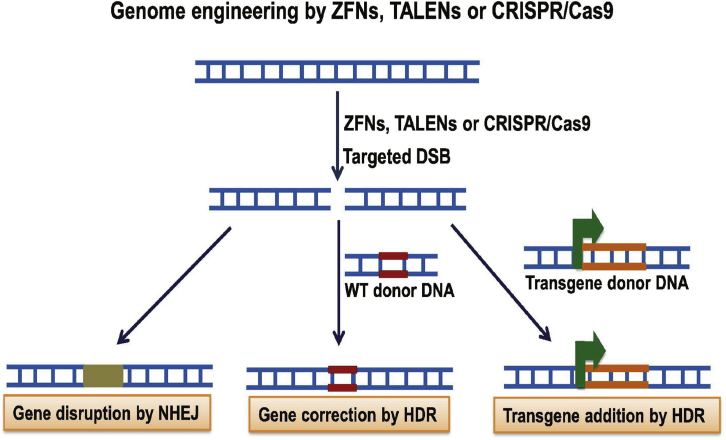Targeted genome modifying is a sophisticated approach that allows exact modification of the nucleic acid sequences in a genome.
Genome modifying is often carried out utilizing instruments, reminiscent of molecular scissors, to chop a outlined location in a particular gene. Genome modifying has impacted numerous fields of biotechnology, reminiscent of agriculture; biopharmaceutical manufacturing; research on the construction, regulation, and performance of the genome; and the creation of transgenic organisms and cell strains.
Although genome modifying is used regularly, it has a number of limitations. Here, we offer an summary of well-studied genome-editing nucleases, together with single-stranded oligodeoxynucleotides (ssODNs), transcription activator-like effector nucleases (TALENs), zinc-finger nucleases (ZFNs), and CRISPR-Cas9 RNA-guided nucleases (CRISPR-Cas9).
To this finish, we describe the progress towards editable nuclease-based therapies and talk about the minimization of off-target mutagenesis. Future prospects of this difficult scientific area are additionally mentioned.

Next biotech crops: new traits, crops, builders and applied sciences for addressing international challenges.
Most of the genetically modified (GM) crops at present commercialized embody a handful of crop species (soybean, corn, cotton and canola) with agronomic characters (traits) directed in opposition to some biotic stresses (pest resistance, herbicide tolerance or each) and created by multinational firms. The similar crops with agronomic traits already available on the market right now will proceed to be commercialized, however there might be additionally a wider vary of species with mixed traits.
The timeframe anticipated for market launch of the subsequent biotech crops won’t solely rely on science progress in analysis and growth (R&D) in laboratories and fields, but additionally totally on how demanding regulatory necessities are in international locations the place advertising and marketing approvals are pending. Regulatory constraints, together with environmental and well being influence assessments, have elevated considerably in the previous many years, delaying approvals and rising their prices.
This has generally discouraged public analysis entities and small and medium dimension plant breeding firms from utilizing biotechnology and given choice to different applied sciences, not as stringently regulated. Nevertheless, R&D packages are flourishing in growing international locations, boosted by the need to satisfy the worldwide challenges which are meals safety of a booming world inhabitants whereas mitigating local weather change impacts.
Biotechnology is an instrument on the service of these imperatives and a wide selection of crops are at present examined for their excessive yield regardless of biotic and abiotic stresses. Many crops with increased water or nitrogen use effectivity, tolerant to chilly, salinity or water submergence are being developed. Food safety isn’t solely a query of amount but additionally of high quality of agricultural and meals merchandise, to be accessible and accessible for those who want it probably the most.
Many biotech crops (particularly staple meals) are subsequently being developed with dietary traits, reminiscent of biofortification in nutritional vitamins and metals. The most important worldwide seed firms proceed to be the biggest buyers in plant biotechnology R&D, and infrequently collaborate in the growing world with public establishments, personal entities and philanthropic organizations.
These partnerships are significantly current in Africa. In developed international locations, plant biotechnology can also be used for non-food functions, such because the pharmaceutical, biofuel, starch, paper and textile industries. For instance, crops are modified to particularly produce molecules with therapeutic makes use of, or with an improved biomass conversion effectivity, or producing bigger volumes of feedstocks for biofuels.
Various plant breeding applied sciences at the moment are used in your entire spectrum of plant biotechnology: transgenesis producing proteins or RNAi. Cisgenesis (transgenes remoted from a crossable donor plant) and intragenesis (transgenes originate from the identical species or a crossable species), null segregants are additionally used. To date, the subsequent technology precision gene modifying instruments are developed in fundamental analysis.
They embody: clustered usually interspaced brief palindromic repeats (CRISPR), oligonucleotide-directed mutagenesis (ODM), transcription activator-like results nucleases (TALENs) and zinc-finger nuclease (ZFN).
